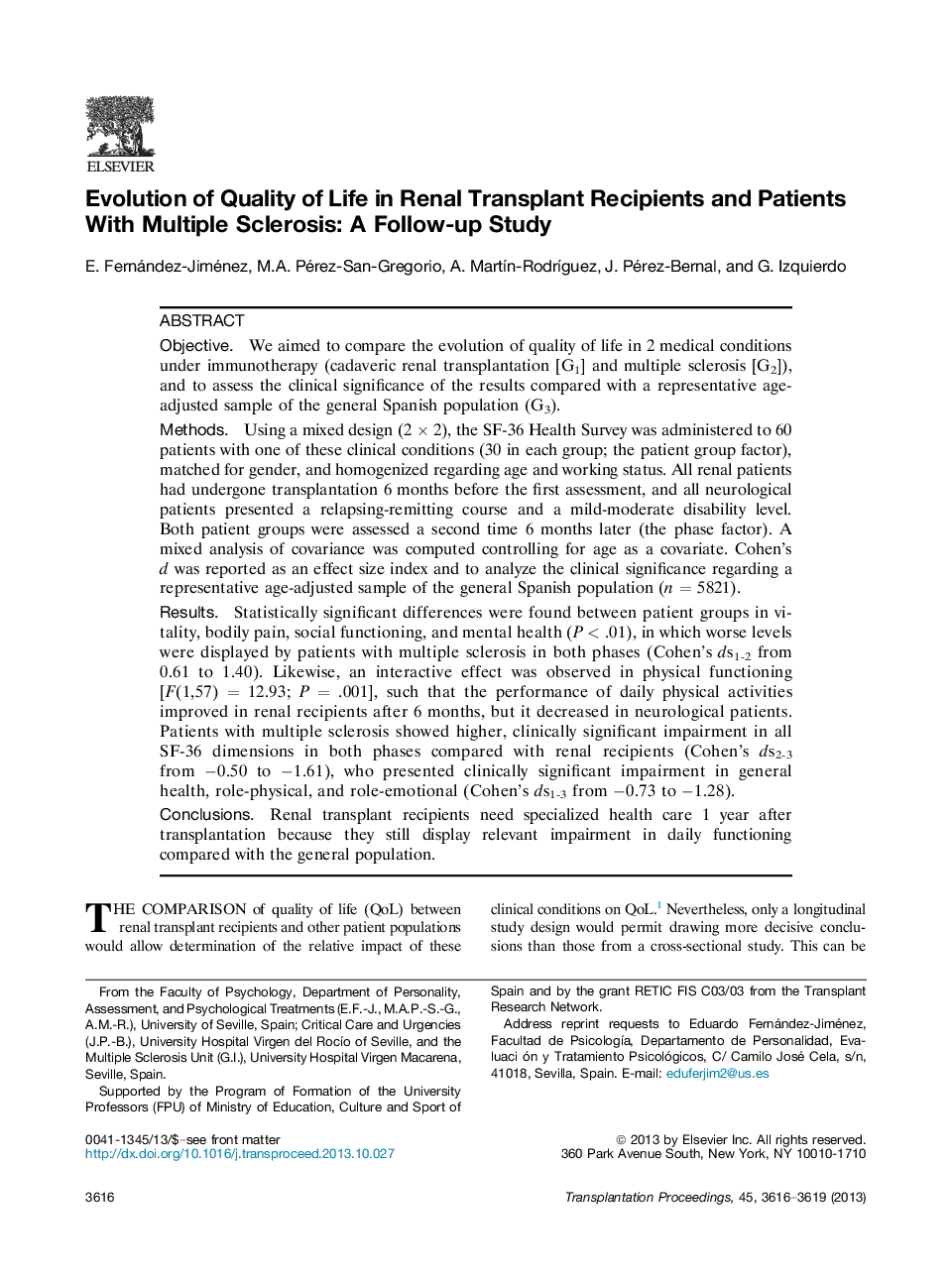| کد مقاله | کد نشریه | سال انتشار | مقاله انگلیسی | نسخه تمام متن |
|---|---|---|---|---|
| 4256542 | 1284525 | 2013 | 4 صفحه PDF | دانلود رایگان |

ObjectiveWe aimed to compare the evolution of quality of life in 2 medical conditions under immunotherapy (cadaveric renal transplantation [G1] and multiple sclerosis [G2]), and to assess the clinical significance of the results compared with a representative age-adjusted sample of the general Spanish population (G3).MethodsUsing a mixed design (2 × 2), the SF-36 Health Survey was administered to 60 patients with one of these clinical conditions (30 in each group; the patient group factor), matched for gender, and homogenized regarding age and working status. All renal patients had undergone transplantation 6 months before the first assessment, and all neurological patients presented a relapsing-remitting course and a mild-moderate disability level. Both patient groups were assessed a second time 6 months later (the phase factor). A mixed analysis of covariance was computed controlling for age as a covariate. Cohen's d was reported as an effect size index and to analyze the clinical significance regarding a representative age-adjusted sample of the general Spanish population (n = 5821).ResultsStatistically significant differences were found between patient groups in vitality, bodily pain, social functioning, and mental health (P < .01), in which worse levels were displayed by patients with multiple sclerosis in both phases (Cohen's ds1-2 from 0.61 to 1.40). Likewise, an interactive effect was observed in physical functioning [F(1,57) = 12.93; P = .001], such that the performance of daily physical activities improved in renal recipients after 6 months, but it decreased in neurological patients. Patients with multiple sclerosis showed higher, clinically significant impairment in all SF-36 dimensions in both phases compared with renal recipients (Cohen's ds2-3 from −0.50 to −1.61), who presented clinically significant impairment in general health, role-physical, and role-emotional (Cohen's ds1-3 from −0.73 to −1.28).ConclusionsRenal transplant recipients need specialized health care 1 year after transplantation because they still display relevant impairment in daily functioning compared with the general population.
Journal: Transplantation Proceedings - Volume 45, Issue 10, December 2013, Pages 3616–3619